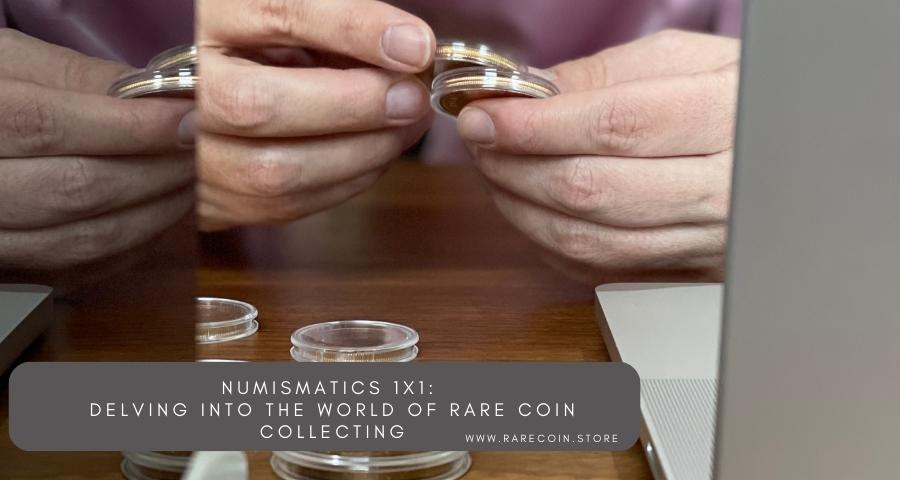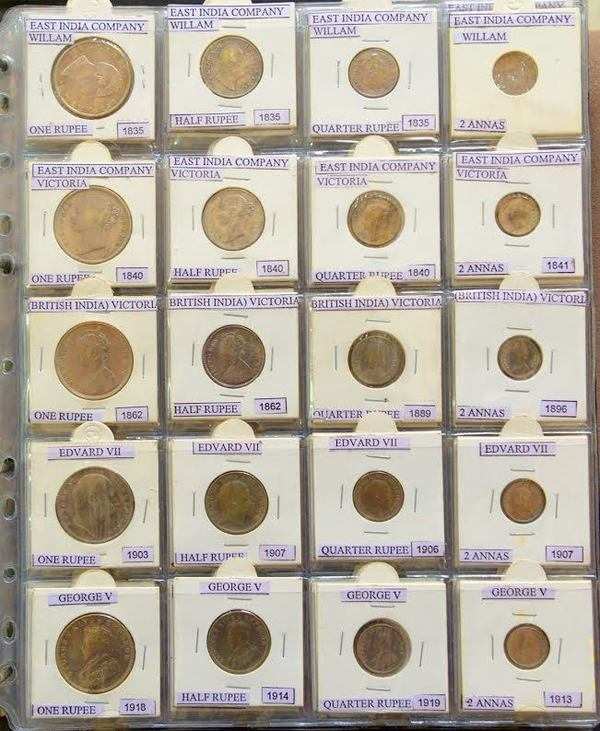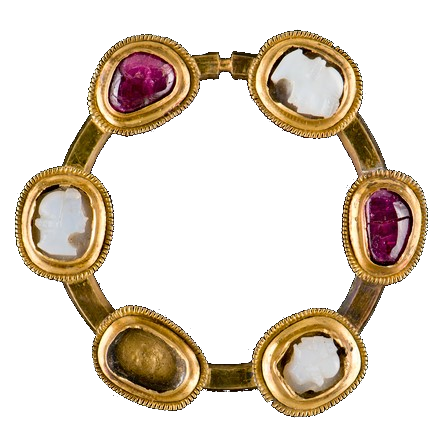A structured approach is provided to conduct this study. Here's a method for conducting such research: Database selection: Pick databases that are specialized in numismatic organizations, such as websites of major numismatic society such as the American Numismatic Association(ANA) and the International Numismatic Council(INC), or regional association like the Numismatic Association of Australia. JSTOR, as well as other academic databases and repositories, can give you access to academic papers and conference proceedings.
Define Research Focus: Specify your research objectives. You may be interested in the past of the numismatic societies, their work as well as regional collaborations and conferences or particular numismatic topics that these organizations discuss. Find out what you're looking for to help guide your search.
Search Strategy: Make use of keywords such as "numismatic associations," "global numismatics,"" "regional numismatic societies," and also include specific association names or geographical regions, if applicable. Use advanced search features to filter results according to date, document (such conference papers or newsletters) and the geographic area.
Data collection: Get details on the mission, history of membership and publications of global and regional associations. Find out about past and future conferences, workshops and collaborative research projects. Find databases that contain information about members, leadership and contact info.
Examine data to determine their the role and impact. Find out how these associations contribute to the advancement of numismatic research, promote international collaborations and propagate research via conferences and publications.
Cross-References: Check information using multiple sources or databases. Examine the activities and initiatives of different associations to get an overview of global and local developments in the field of numismatics.
Documentation. Note your research findings, including every source and listing the methods you used. Keep track of details such as the databases you searched with and the search terms you used, and how relevant each source was to your research.
Keep yourself updated: Numismatics groups are continually evolving. This includes new publications, collaborative projects, and conferences. Updates on websites of associations, newsletters, scholarly database as well as the websites of association organizations will keep you informed of the latest in global numismatics.
By following these steps, you will be able to allow you to effectively use databases to research numismatics and how it pertains to regional and global organizations. This method allows for a thorough analysis of the structure of organizations, scholarly activities, and collaborative efforts that shape the numismatic field on both a global and regional scale. Follow the top rated real recommendations for site examples including currency collecting, coin auction, dirham, currency dealer, legal tender, proof, banknote certification, dollar, penny, banknote appraisal and more.

What Can I Do With Numismatics To Do Research On Mines?
For a structured way to conduct your research Follow these steps: Selecting databases that specialize on mining history and metal resources as well as the sourcing for coins. Here's a method for conducting this type of study: Database Selection: Select databases that focus on mining the past and mineral resources. Examples include geological studies, mining company databases and old mining documents.
Define Research Focus: Specify your research objectives. Are you interested in learning more about the historic mines that supplied metals for coins as well as the origins of geographic coins, the mining methods that were used throughout different periods of history or the economic effect of mining on numismatics? Clarify the focus of your search.
Search Strategy: Use keywords such as "mining history,” "coinage materials" "historical mins" and specific metal names or geographical regions (gold and silver, copper and) if relevant. Results of a search can be filtered according to the date or type of document.
Data Collection: Access historic mining operations that produced the metals used for coinage. Gather details such as the location of the mine, dates of operation, the types of metals extracted, volumes of production, and any historical documents that pertain to mining operations.
Analysis: Analyze the data to understand the connection between numismatics and mining. Learn how the quality of the metal sources influenced the production of coins. Find out about the coinage standards that were adopted and how mining regions affected numismatic history.
Cross-Referencing: Confirm your findings by cross-referencing data across different sources and databases. This method ensures that your research is reliable and complete, giving you a full picture of the impact of mining on numismatics.
Documentation: Record your findings thoroughly including citations to sources and a note of the methodologies you employed. Note the details of the databases used, the search terms used, as well as the relevance of each source to your research questions.
Stay Up-to-date Keep Up-to-date: Records and data of mining could change in the course of time because of research and discoveries. Updates from geological survey reports and mining company reports, and research platforms that focus on numismatics as well as mining will keep you informed.
These steps can help you explore the relationship between mining, numismatics, and databases. This permits a comprehensive investigation of the mining activities that have been in operation for a long time which provide the metals necessary for coin production. View the best great site for website advice including coin identification, banknote errors, banknote design, coin rarity, banknote club, mint, coin history, ringgit, banknote production, yen and more.

How Can I Find Out More About Numismatics And Collectors Through A Numismatics Database?
Researching numismatics with regards to collectors is done by using databases that concentrate on collecting interests, collections numismatic societies, as well as collector profiles. Here's a method to conduct such research:Database Choice: Choose databases that specialize in collector profiles, numismatic collections and numismatic society profiles. They include online forums for collectors (such as those run by the American Numismatic Association), the websites of numismatic organisations Collector databases, as well as specialized platforms for numismatics.
Define Research Focus: Specify your research objectives. Are you keen to know more about the collection desires of a particular collector and notable collections, or about trends in the field of collecting numismatics Are you more interested in the cultural and historical reasons that motivate collection practices? Clarify what you are seeking to reduce your hunt.
Search strategy: Choose terms that define collectors, such as "numismatic" or "collector profiles", and add particular names for collectors if required. Use advanced search options to filter results based on date, collecting specialty (such as coinage from the past, exonumia or paper money) and membership in a numismatic society.
Data Collection: Access to data on collectors. This includes biographies of collectors as well as collecting interests, notable purchases, and contributions from members of the community or experts. Get information on the development and dispersion of notable collections such as auction results and catalog entries.
Analysis: Examine your data to gain better understanding of the motives and factors that fuel the numismatic collection. Learn how collectors influence market demand, impact the trends in collecting and aid in the preservation and diffusion of numismatic knowledge through publications, exhibitions, or educational projects.
Cross-Referencing Verify data by cross-referencing it across auction archives, databases publications, numismatic journals, and collector profiles. This ensures that your research is complete and accurate, and provides a greater understanding of the roles and contributions played by collectors in the numismatic field.
Documentation. Note your research findings by systematically listing sources and noting methods employed. Keep track of details like databases you've accessed as well as your search terms and their relevance to the research questions.
Stay current: Numismatics' collecting interests and styles change as time passes. Keep up to date by checking for updates on collector forums, numismatic societies publications, and databases that specialize in numismatics.
Take these steps to effectively utilize databases effectively to research collectors and numismatics. This method allows for a thorough investigation into the motivations of collectors, their interests, and the contributions of collectors to the numismatic field, and provides valuable insight into the historical, cultural, and economic dimensions of collecting practices. Take a look at the top uncirculated blog for website recommendations including commemorative coins, engraving, currency collecting, currency authentication, central bank, zloty, denomination, quarter, coin show, coin planchet and more.

How Can I Find Out More About Numismatics Through A Database Online Forums And Communities?
This involves utilizing forums and online communities which experts, enthusiasts, and collectors can share their expertise and discuss current trends or showcase their collections. Here is a comprehensive procedure for conducting this research. Examples include forums like CoinTalk Reddit's r/Coins and special numismatic communities that are on social media platforms like Facebook groups and LinkedIn.
Define Research Focus: Specify your research objectives. Are you keen to know more about current collecting patterns, discuss specific types of coins and historical periods, get guidance on authenticity and grading? Or meet with experts in specific area of numismatics? Find out what you're trying to find in order to narrow your search.
Search Strategy: Make use of terms that relate to your interest, such as "numismatic forums," "coin collecting communities," "online numismatic discussions," and include specific areas (ancient coins and modern coins and paper money) or search terms related to your research question. Search functions are available on each platform.
Data Collection: Read the information contained in discussions, threads or articles on online forums. Find out information about collecting strategies coins, coin identification strategies and market trends, as well as personal experiences with numismatic discoveries and discussions about historic or cultural aspects of coinage.
Analyze the data to discern opinions, expertise and experiences that are common among the online communities. Evaluate the credibility of the information based on the expertise of contributors, the consensus among members on specific subjects, and the depth of discussions.
Cross-Referencing - Verify the accuracy of your conclusions by comparing data from different communities and forums. Examine the insights of different platforms to gain a broader view of trends, market sentiments, and expert guidance in the numismatics community.
Documentation. Document your findings by consistently citing threads or discussions and contributing authors as needed. Keep track of the most important insights and views expressed in online forums and communities.
Engage: Take part in discussions or ask questions, and then add to it, to gain fresh knowledge and establish relationships within the numismatics community. Keep up-to-date on the latest threads. Updates, replies and announcements to stay abreast of the most recent developments and discussions.
Follow these steps to effectively utilize forums and online communities to conduct the study of numismatics. This technique allows you to tap into the collective wisdom and experience of diverse collectors and specialists, giving valuable insights and insights into the different aspects of collecting coins, identifying them, and valuing their value. Take a look at the best nickel hints for website info including rare coins, banknote expo, banknote certification, currency authentication, historical currency, coin news, proof coins, coin minting, precious metals, currency authentication and more.

How Do I Confirm And Update My Information In A Database That Is Used For Numismatics Research?
This research has been designed to assist you: This is a method that can be structured to do such research. This can include auctions of numismatic databases (such as Heritage Auctions and Stack's Bowers Galleries) Coin catalogs on the internet (such Numista or CoinArchives) as well as databases of numismatic societies and reputable dealer sites.
Define Research Focus: Specify your research objectives. Are you trying to determine details on coins (such weights, compositions of metals), historical details, market values (prices that are achieved through auctions) and trends in collecting or market prices? Clarify where you want to focus your search.
Make use of specific keywords such as historical periods, coin types to help you reduce your search. Use the search function to filter your results according to date, source, or the attributes of a coin.
Data Collection: Access reliable sources of historical and numismatic information. From auction catalogues and auction results, gather information such as pictures, descriptions of coins historical background information markets, values for market, and information on provenance.
Verification procedure: Compare the data from different databases (auction houses and catalogs) by cross-referencing. To verify the accuracy of your data verify the coin's specifications, you should compare them with standard references (such as a guide to grading coins or official mint records).
Updates - Monitor databases regularly to ensure that the numismatic statistics are updated. Stay up-to date on new discoveries of coins, updates to market prices, modifications to historical attributes, and emerging collecting patterns. Sign up to numismatic platforms' newsletters and alerts for the most up-to-date news and updates.
Analysis: Analyze data verified to gain insight on the characteristics of coins, their historical significance as well as market trends. Evaluate the implications of updated information on your numismatic research or other collecting passions.
Documentation. Note your findings by citing sources, and recording how you verified them. Be aware of any changes in market value and updated data.
Following these steps, you'll be able to effectively utilize databases for research into the numismatics field in relation to information verification and updates. This will ensure that you have access to reliable and current information that is essential for making educated decisions about coin collecting as well as research and investment. Read the top rated half-dollar examples for blog tips including austrian coins, banknote rarity, commemorative coins, banknote catalog, coin news, banknote history, banknote design, rare banknotes, proof coins, banknote dealer and more.
